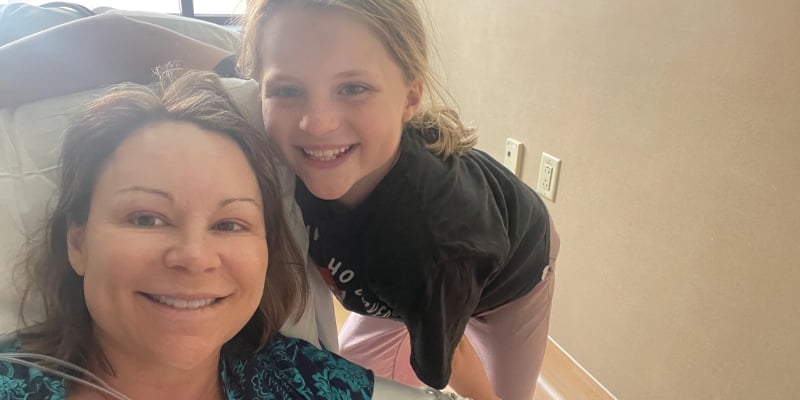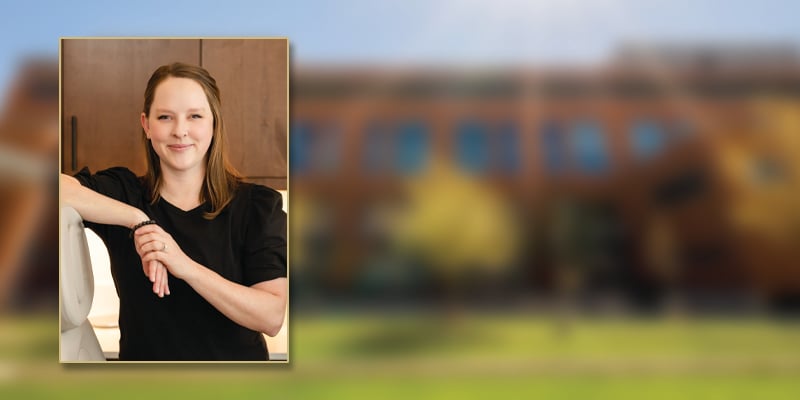Lieutenant Colonel Christopher H. Stucky, PhD, RN, CNOR, CSSM, CNAMB, RN-BC, NEA-BC discusses CU, his career, and his nursing inspirations.
1) What drew you to Nursing?
My mother and grandmother were both nurses, so I was familiar with the role. My mother was a nurse practitioner, and I distinctly remember being amazed at the complexity and importance of her job.
My first professional exposure to nursing was while serving as an active-duty surgical technologist in the US Army. Working closely with perioperative nurses on interprofessional surgical teams, I developed a deep respect for the nursing role. I became keenly aware of the impact perioperative nurses can have on optimal patient health and surgical outcomes. During this time, I served with several great perioperative nursing mentors who encouraged and motivated me to attend nursing school.
2) What was your time like at CU?
I first heard about the University of Colorado College of Nursing while stationed at Fitzsimons Army Medical Center. An employee at the post-education office gave me a flyer about the nursing program and photocopied a list of the prerequisites and admission requirements. As a nontraditional student, I tediously fulfilled the school prerequisites after work, one class at a time.
I attended CU from 1999-2001 when the College of Nursing was located at Ninth Avenue and Colorado Boulevard in Denver and known as the University of Colorado Health Sciences Center. My CU experience was different from most, as I attended college as an active-duty soldier under the Army Enlisted Commissioning Program (AECP). I thought the curriculum was very challenging and exciting. The rigorous education and clinical rotations at the Denver Veterans Affairs Medical Center, the Medical Center of Aurora, and other local hospitals gave me an advantage over others and prepared me to excel early in my career as a nurse.
The 9/11 terrorist attacks occurred shortly after I graduated from CU, which profoundly impacted my career. I view my time at CU Nursing as "the calm before the storm," as those events heavily influenced my career moving forward.
I am a current student in the College's Veteran and Military Health Care (VMHC) post-graduate certificate program. Colonel (Retired) Mona Pearl Treyball has developed a very innovative curriculum concerning a vulnerable patient population: veterans and military service members. Even though I have extensive experience providing care to active-duty military patients, I realized that I did not have a clear understanding of the unique issues service members face once they leave the military and enter the civilian world. The education that I have received in the (VMHC) program at CU Nursing has made me more aware of the issues my current patient population faces and will continue to face in the future. I highly recommend this educational specialty for military service members or those taking care of this important patient population.
3) What has your career been like? What got you here and where do you see your career going?
It is an honor to serve our nation's warriors and their families as an Army Nurse Corps officer. Service to others has provided me with a profoundly rewarding and enriching path since graduating from CU 20 years ago.
I currently serve as the perioperative consultant to the Army Surgeon General and as a nurse scientist for the Center for Nursing Science and Clinical Inquiry (CNSCI) at Landstuhl Regional Medical Center, Germany.
The primary focus of my nursing career has been in the perioperative setting, where I have worked as a perioperative nurse on surgical teams and led the operating room as a perioperative nursing director. I have more than 29 years of US Army active-duty service and hold board certifications in perioperative nursing (CNOR), Certified Ambulatory Surgery Nurse (CNAMB), Certified Surgical Services Manager (CSSM), nursing informatics (RN-BC), and as a nurse executive (NEA-BC). I continued my education by earning an MSN in nursing informatics and a PhD in Nursing at Uniformed Services University of the Health Sciences (USUHS). I deployed twice to Iraq as a perioperative nurse in a combat support hospital for Operation Iraqi Freedom (2004 -2005) and Operation New Dawn (2010-2011).
In my role as a nurse scientist, I mentor and coach other healthcare professionals through all aspects of research and evidence-based practice to help build an organizational culture of inquiry that supports nurse-led innovation. Although the primary focus of my job is to conduct research that aligns with military priorities, my team also leverages data to provide decision support to hospital leaders. Most of my funded research and publications focus on surgical team communication, team performance, system science, risk reduction, and credentialing. Working as a nurse scientist is very fulfilling, as it provides me a chance to make broader changes across the health system than strictly working as a clinical leader.
4) What advice would you offer our students today?
I have several recommendations for students after they graduate from CU and enter the nursing workforce. First, prepare yourself to engage in continuous professional development throughout your nursing career. Upon graduation, I would never have imagined that I would earn a PhD and work as a nurse scientist. Discovering that there will be more learning ahead is something that current students might not want to hear. However, nurses have a professional and ethical obligation to sustain professional growth and development throughout their careers. Earning advanced degrees and attaining specialty nursing certifications will enable them to have a voice in health policy decision-making and serve as leaders in the broader health care system. After graduating from CU, I was busy establishing clinical nursing skills, and earning a graduate degree was the farthest thing from my mind. As I matured in my nursing career, a continuous cycle of learning and applying knowledge became foundational to my clinical practice, and I became more open to earning higher levels of education and certifications.
Second, I highly recommend that new nurses establish a formal mentoring relationship with an experienced and highly educated nurse leader to help shape their careers. Nurse mentors serve as role models and help to educate, inspire, and motivate junior nurses. Currently and throughout my career, I have worked with several key mentors who graciously spent their time encouraging my continual professional growth and advancing my leadership skills.
The views expressed are solely those of the authors and do not reflect the official policy or position of the US Army, US Navy, the Department of Defense, or the US Government.


